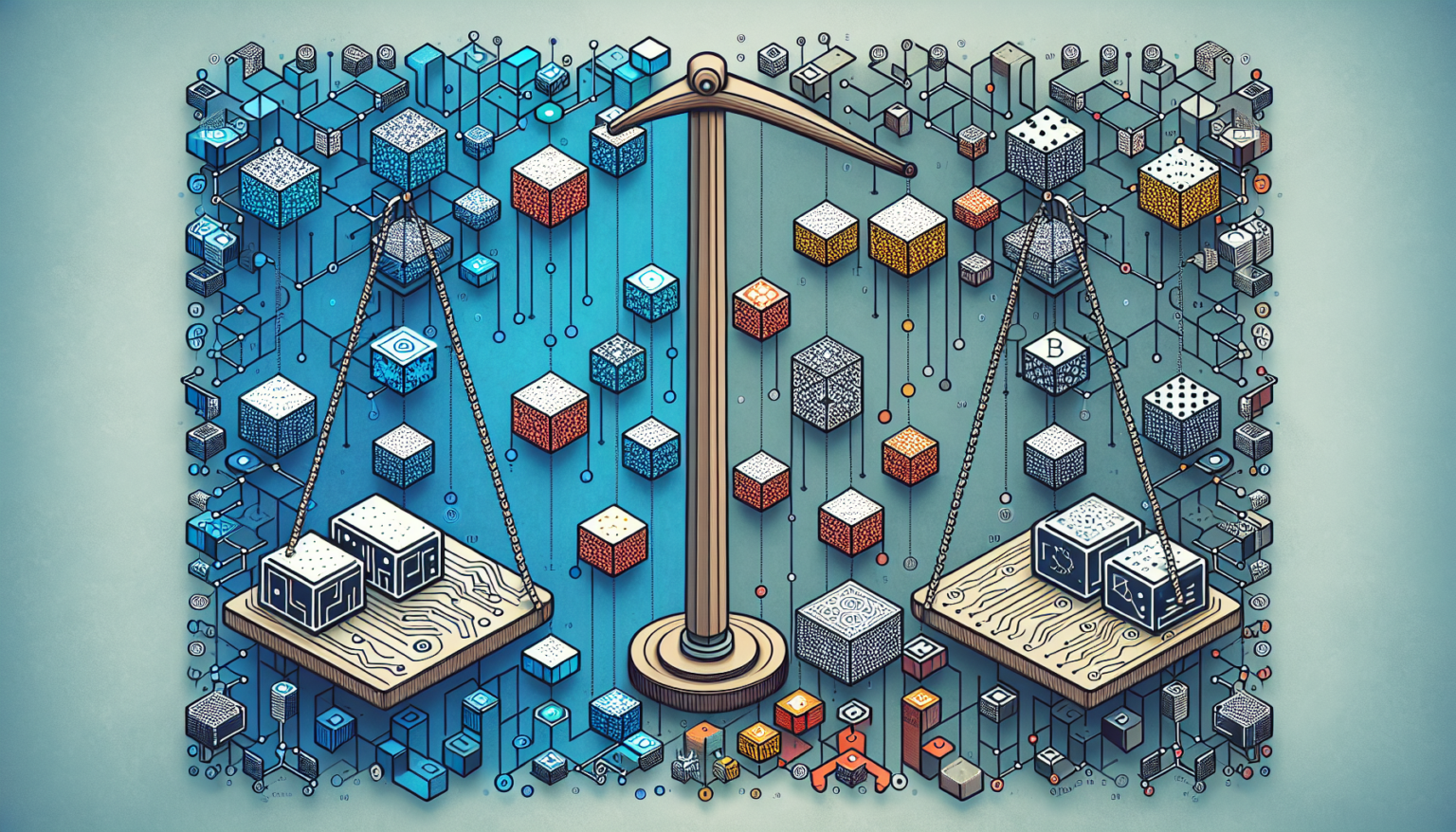Understanding NFT Marketplaces
What are NFTs?
Non-fungible tokens (NFTs) are unique digital assets that represent ownership of a specific item or piece of content, often linked to blockchain technology. Unlike cryptocurrencies such as Bitcoin or Ethereum, which are fungible and can be exchanged one-for-one, NFTs have distinct qualities that make them one of a kind. Artists, musicians, and creators are leveraging this technology to monetize their work in the digital realm, leading to an explosion in the popularity of NFT marketplaces.
The Rise of NFT Marketplaces
As NFTs gained traction, various platforms emerged to facilitate the buying, selling, and trading of these assets. Each marketplace operates on different blockchains, which can affect fees, accessibility, and the overall user experience. Understanding the distinctions between these marketplaces is crucial for anyone looking to invest in or create NFTs.
Popular Blockchains for NFTs
Ethereum
Ethereum is the most widely recognized blockchain for NFTs. It introduced the ERC-721 token standard, which allows for the creation of unique digital assets.
Pros of Ethereum
– **Widespread Adoption**: Due to its pioneering role, Ethereum has the largest selection of NFT marketplaces, including OpenSea, Rarible, and Foundation.
– **Strong Developer Community**: A vibrant ecosystem of developers continually innovates and enhances the platform.
Cons of Ethereum
– **High Gas Fees**: Transaction costs can be significant, especially during peak times, which might deter smaller investors.
– **Environmental Concerns**: Ethereum has been scrutinized for its energy-intensive proof-of-work consensus mechanism, though it is in the process of transitioning to proof-of-stake.
Binance Smart Chain (BSC)
Binance Smart Chain has gained momentum as a viable alternative to Ethereum, offering lower fees and faster transaction times.
Pros of Binance Smart Chain
– **Lower Transaction Fees**: Users typically pay less in gas fees compared to Ethereum.
– **Cross-Chain Compatibility**: BSC allows for interoperability with other blockchains, expanding usability and liquidity.
Cons of Binance Smart Chain
– **Centralization**: Critics argue that BSC is more centralized than Ethereum, which can pose risks in terms of security and control.
– **Smaller Marketplace Selection**: While growing, the number of NFT marketplaces on BSC is still limited compared to Ethereum.
Polygon
Polygon operates as a layer-2 scaling solution for Ethereum, enabling faster and cheaper transactions while retaining the benefits of the Ethereum network.
Pros of Polygon
– **Reduced Fees**: The layer-2 solution significantly lowers transaction costs, making it attractive for both creators and buyers.
– **Integration with Ethereum**: Users can easily access Ethereum-based NFTs while benefiting from the scalability of Polygon.
Cons of Polygon
– **Less Mature Ecosystem**: While growing, the marketplace and community surrounding Polygon are still developing compared to Ethereum.
– **Familiarity Barrier**: Some may be hesitant to adopt a less-known technology chain, despite its advantages.
Solana
Solana has surged in popularity, known for its high throughput and low transaction fees.
Pros of Solana
– **High Speed and Scalability**: Solana can process thousands of transactions per second, making it an attractive option for busy art releases or gaming applications.
– **Very Low Fees**: Transaction costs on Solana are a fraction of a cent, making it accessible for all types of users.
Cons of Solana
– **Less Established Marketplaces**: Although emerging, Solana’s NFT marketplace options are not as developed as Ethereum’s.
– **Network Outages**: Solana has faced several high-profile outages that raised concerns about reliability.
Tezos
Tezos is an energy-efficient blockchain that has made strides in the NFT space by emphasizing sustainability.
Pros of Tezos
– **Eco-Friendly**: Tezos operates on a proof-of-stake model, which minimizes energy consumption compared to traditional proof-of-work blockchains.
– **Lower Costs**: Similar to Polygon and Solana, transaction fees on Tezos are much lower than those on Ethereum.
Cons of Tezos
– **Niche Market**: While it has gained a loyal following, the general awareness and adoption of Tezos for NFT creation are lower than Ethereum.
– **Limited Marketplace Options**: The range of available NFT marketplaces is smaller, potentially limiting exposure.
Factors to Consider When Choosing an NFT Marketplace
Transaction Fees
One of the first considerations for any user is the cost associated with buying or creating NFTs. While Ethereum may offer a broad selection of assets, the high gas fees can be a deterrent for many. On the flip side, blockchains like Solana and Polygon can provide a more cost-effective solution.
User Experience
Navigating the NFT marketplace should be intuitive. Platforms that offer features such as user-friendly interfaces, robust customer support, and community engagement often create a more enjoyable experience for both sellers and buyers.
Marketplace Selection
The diversity of a marketplace can affect liquidity and the ability to trade assets easily. Ethereum marketplaces typically have a broader range of NFT categories and collections, providing users with more options.
Security
Security is paramount when dealing with digital assets. Evaluate the security protocols of a platform, including whether it has insurance against hacks or fraud.
Community and Ecosystem
The strength and engagement of a marketplace’s community can greatly enhance the user experience. Active communities can lead to better support, collaboration, and sharing of resources.
Concluding Thoughts on Blockchain Choices
As interest in NFTs continues to grow, determining the best blockchain for digital assets is ultimately a personal choice that may depend on various factors including transaction fees, community involvement, and the types of digital assets you wish to engage with. Each blockchain brings its unique strengths and weaknesses to the table, so understanding these nuances can empower creators and collectors alike in the ever-expanding landscape of digital assets. While Ethereum continues to dominate the NFT space, alternatives like Solana and Binance Smart Chain are proving themselves as formidable contenders, waiting for users to explore their potential.








